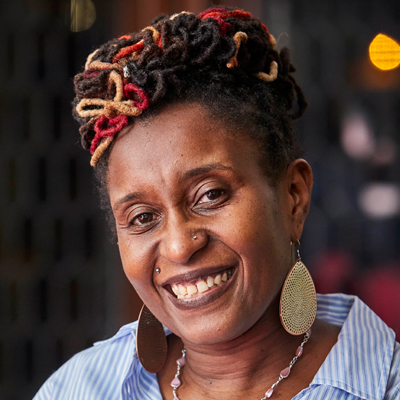Tags
Climate activist Greta Thunberg, Divesting from fossil fuels, Doomsday Clock/Bulletin of the Atomic Scientists, Global climate emergency, Global Risks Report 2020, Increased threat of nuclear war, Michael T Klare, U.S. Treasury Secretary Steven Mnuchin, World Economic Forum 2020 in Davos
On Thursday, January 23, 2020, our atomic scientists advanced the Doomsday Clock another twenty seconds, bringing the fate of humanity to a hundred seconds to midnight. For those who don’t know, midnight signifies humanity’s self-annihilation with its nuclear arsenal. The guns that Americans cling to, like a toddler clings to his teddy bear, would be rendered useless in the face of a nuclear threat. To learn more, read the full statement issued by the Bulletin of the Atomic Scientists.
In his article “Twin Threats,” published in The Nation magazine (issue dated 01/27/2020), Michael T. Klare argues:
“All things being equal, rising temperatures will increase the likelihood of nuclear war, largely because climate change will heighten the risk of social stress, the decay of nation-states, and armed violence in general…”
Of special concern are India, Pakistan, and China—all well-armed with nuclear weapons of mass destruction—that will face conflicts over dwindling water supplies. Pakistan and western India share the same Indus River system. Likewise, eastern India and western China both depend upon the Brahmaputra River for their water needs. Unlike oil, water is essential for human survival.
While the American government continues to publicly disavow our global climate emergency, Klare notes that our “nation’s senior military leaders recognize that climate disruption is already underway, and they are planning extraordinary measures to prevent it from spiraling into nuclear war.”
On Friday, January 24, at the 2020 World Economic Forum in Davos, during a panel discussion about the impact of climate change on the global economy, U.S. Treasury Secretary Steven Mnuchin was quick to say: “Let’s call it an environmental issue and not climate change.” What’s more, he argued, experts are overestimating its monetary impact.
During a press briefing the day before, Mnuchin dismissed climate activist Greta Thunberg’s call for divestment from fossil fuel companies. He told Yahoo Finance: “After she goes and studies economics in college, she can come back and explain that to us.” What can Greta and the rest of us economic neophytes learn from the experts?
On January 15, prior to its event in Davos, the World Economic Forum released The Global Risks Report 2020 in London, UK. Bear in mind that this report, produced in partnership with Marsh & McLennan and the Zurich Insurance Group, deals with financial risks for transnational corporations and national and the global economies.
Over 750 global experts and decision-makers were asked to rank their biggest concerns in terms of likelihood and impact. For the first time in the survey’s ten-year outlook, the top five global risks in terms of likelihood are all environmental. In concise terms, these risks are:
1. Extreme weather
2. Climate Action failure
3. Natural disasters
4. Biodiversity loss
5. Human-made environmental disasters
The political landscape is polarized, sea levels are rising and climate fires are burning. This is the year when world leaders must work with all sectors of society to repair and reinvigorate our systems of cooperation, not just for short-term benefit but for tackling our deep-rooted risks.
~ Borge Brende, President of the World Economic ForumBiologically diverse ecosystems capture vast amounts of carbon and provide massive economic benefits that are estimated at $33 trillion per year – the equivalent to the GDP of the US and China combined. It’s critical that companies and policy-makers move faster to transition to a low carbon economy and more sustainable business models. We are already seeing companies destroyed by failing to align their strategies to shifts in policy and customer preferences. Transitionary risks are real, and everyone must play their part to mitigate them. It’s not just an economic imperative, it is simply the right thing to do.
~ Peter Giger, Group Chief Risk Officer of the Zurich Insurance Group
I’m no economic expert. I know only that the soulless corporate personhood has devised ways to thrive on the chaos and detritus of human calamity. To the billionaire-class and those who aspire to join them, gathered recently at the World Economic Forum, I say: Your self-enrichment economic system is the Number One risk to humanity’s continued existence on Planet Earth. While you continue to amass unimaginable wealth, the explosive inequality among the masses of real people worldwide just requires a climate-induced drought and famine in a nuclear-armed nation for ignition.
When the Doomsday Clock strikes midnight, money markets and a nation’s gross domestic product (GDP) will lose their value and meaning for any surviving remnant of our species.


